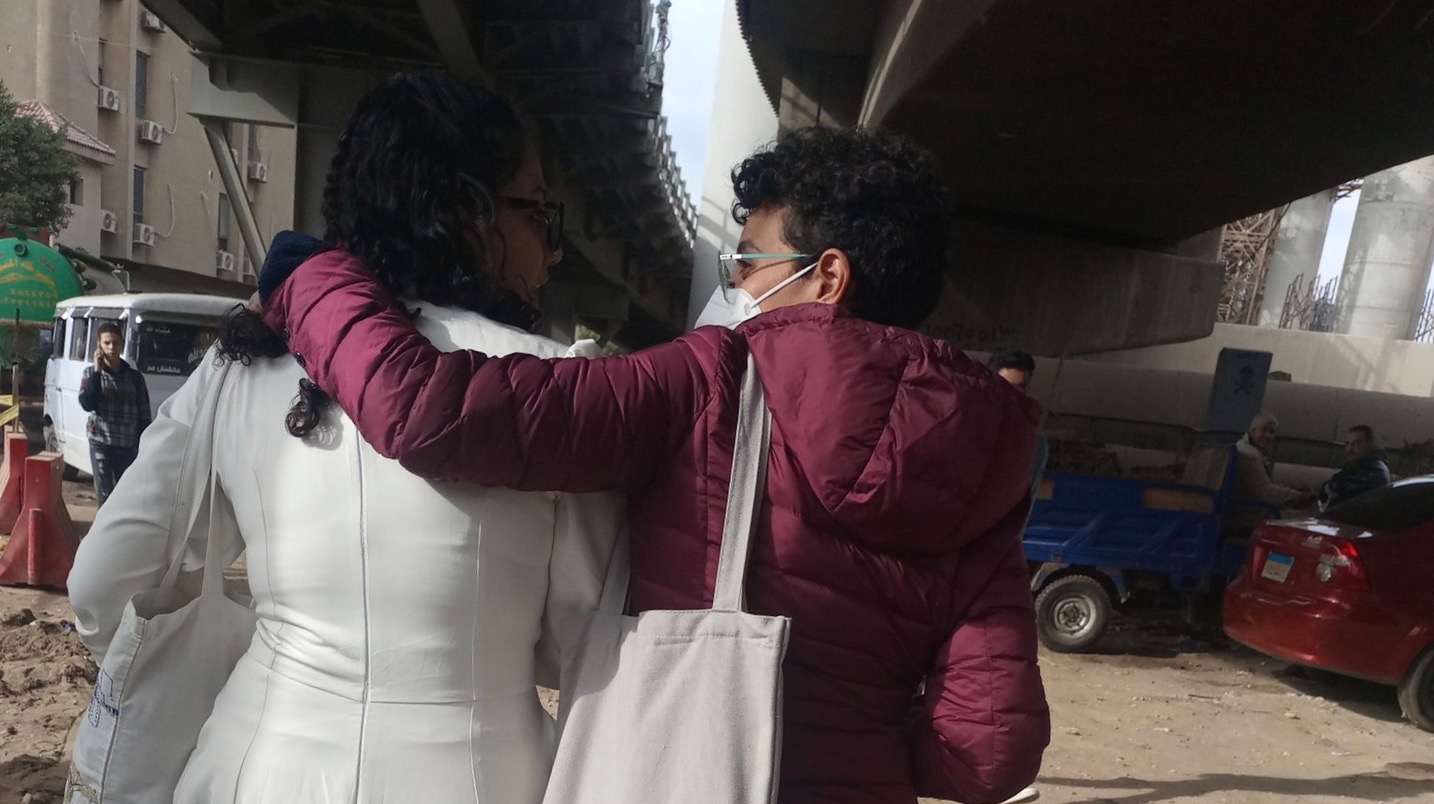Well-known Egyptian human rights activist Sanaa Seif was released from prison on Thursday, December 23, after completing an 18-month prison sentence. Seif’s release comes days after her brother and prominent human rights activist and blogger Abdel Alaa Fatah was sentenced to five years in prison. Alaa’s sentencing has drawn widespread condemnation, with Amnesty International calling it “a misrepresentation of justice, and a reminder of the Egyptian authorities’ brutality against opponents.” Activists and human rights groups have called on the Egyptian authorities to release him and two other activists.
Following Seif ’s release, her sister Mona, also a human rights activist, tweeted a photo of them together in a street in capital Cairo with the caption “Sanaa on the asphalt,” used by Egyptians to denote freedom from unjust detention. The three siblings hail from a family of academics and human rights activists. Their mother Leila Soueif is an acclaimed mathematician and activist while their father who died in 2014 was a prominent human rights lawyer. Their aunt Ahdaf Soueif is an award-winning novelist.
Seif was arrested on June 23, 2020 after being abducted outside the prosecutor general’s office outside the Tora prison complex in Cairo where she had gone with her mother and sister to file a complaint against a robbery-attack on them a day earlier by a group of armed women in plainclothes. After being abducted, Sanaa was illegally kept in pre-trial detention for nine months and subsequently slapped with charges like “spreading fake news via her social media for the purposes of stirring public opinion against state institutions”, “using a Facebook account to terrorize people”, “disturbing security and peace and disrupting the institutions of the state from their work” and “insulting a police officer”. She had denied all the charges against her.
After an investigation and trial that was heavily criticized by rights groups as being “flawed”, “unjust” and in “violation of fair trial rights enshrined in international law”, Seif was sentenced to 18 months in prison on March 17.
This is not the first time that Seif has been targeted by authorities in Egypt. In 2016, she was awarded a six-month jail term for “insulting the judiciary”. In 2014, she was arrested and given a three-year prison sentence for participating in “unlawful protests”. She was released from prison in 2015 after serving 15 months due to a presidential pardon. Other members of her family, including her brother, mother, father and aunt, have also repeatedly been victims of state persecution.
Since President Abdel Fattah el-Sisi took power in a military coup against Egypt’s first democratically elected president Mohammed Morsi in 2013, the country has witnessed a grave deterioration in the status of human rights. The Sisi regime has orchestrated a massive campaign of violence and crackdowns to suppress any criticism or dissent to maintain a firm grip on power. There are over 60,000 political prisoners currently languishing in Egyptian jails, including activists, bloggers, lawyers, journalists, politicians, and members of the now-banned Muslim Brotherhood. The regime has also used the judicial system to falsely implicate and punish its political and ideological opponents, simultaneously trying to instill fear of judicial persecution and capital punishment to force others into silence. The death penalty has been used to put several people to death.





